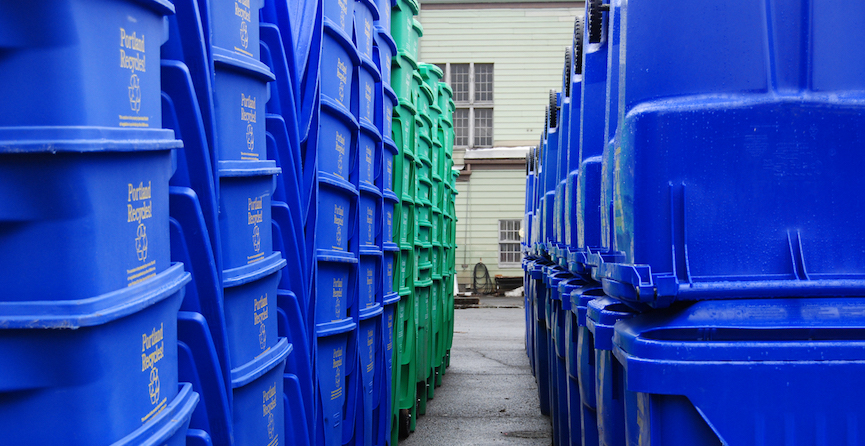Canadians care about the environment. We recycle, compost, take pride in our spectacular natural areas and understand the threat of climate disruption. But we also use more energy and water and produce more garbage per capita than any nation.
In 2017, Canadians produced 1.33 billion tonnes of waste — 36.1 tonnes per person — with only 20.6 per cent treated or recycled, according to a study by 24/7 Tempo based on World Bank data. Much of that is industrial waste, especially from the oil industry, but household waste is also a problem.
Despite municipal recycling programs, we ship boatloads overseas. Now, some is coming back. The Philippines recently returned 69 shipping containers of what was supposed to be plastic for recycling but was mostly household garbage. Cambodia wants to send back 11 containers, also mislabelled as plastic for recycling, and Malaysia has returned a container. Countries including China, India, Vietnam, and Taiwan have banned or restricted waste imports.
Much exported material isn’t even recycled. It gets burned or dumped into rivers. Most countries, including Canada, ratified the 1989 Basel Convention, aimed at reducing waste, disposing of it in the country where it was generated, and exporting it only if the receiving country gives “prior informed consent.” In May 2019, countries voted to amend the convention to ban exporting hazardous and household wastes to developing countries; Canada opposed the amendment.
At the same time, our government announced it will ban non-essential, single-use plastic items starting in 2021, although it hasn’t released details. EU nations have already agreed to ban plastics including “cutlery, plates, straws, ear swabs, plastic balloon sticks and drink stirrers” by 2021. Other countries and jurisdictions have either banned or agreed to ban a range of items, including plastic bags. Some are facing challenges. Victoria, B.C.’s plastic bag ban was overturned after a court challenge from the Canadian Plastic Bag Association.
The real problem is that we produce too much. Remember, the first of the Rs is reduce. Plastic products are a ubiquitous, profitable offshoot of the fossil fuel industry. Because societies are driven by consumerism, profit and constant growth, the impetus is to make more rather than less, for everything from packaging to straws.
The massive volumes of plastic we throw away — much of it unnecessary — end up in landfills, waterways and oceans, devastating wildlife and marine health. It doesn’t biodegrade but breaks down into smaller particles that end up in the food web — including in us.
A huge problem is discarded fishing gear, which entangles more than 100,000 seabirds and marine animals such as whales, dolphins, sea turtles and seals yearly, often killing them. Researchers estimate that 600,000 to 800,000 tonnes of “ghost” gear ends up in the oceans every year, by accident or deliberately. According to the UN, “Some of the abandoned nets can be as big as football pitches,” and “can take up to 600 years to break down, shedding microplastics as it degrades” — trapping marine life all the while.
To support the federal ban on single-use plastics, the Green Budget Coalition, representing 22 environmental organizations including the David Suzuki Foundation, is recommending the government invest in public education and compliance initiatives, support for zero-waste business investments, mapping pathways to a “circular” economy, and implementing a program to prevent and recover ghost fishing gear. A circular economy is regenerative by design; products are built to last, to be re-used, repaired or remanufactured, or to have materials recovered.
The phenomenal boom in fossil fuel-derived plastics coincided with the rise of oil and gas and auto industries, where one goal is to burn and use as much fossil fuels as possible, keeping profits and economies humming. We’re now seeing the consequences of this rapid, relatively recent juggernaut: climate chaos, dying oceans and pollution everywhere — even where humans aren’t.
Bans on single-use plastic items won’t solve everything, but they’re a good step and help raise awareness about our wasteful ways. We have numerous ways to drastically reduce plastic use, and to make better, longer-lasting products, even creating plastics with biodegradable materials such as plant cellulose.
Let’s not take our abundant resources and territory for granted. “Disposable” should be unacceptable. In a finite world, everything has to go somewhere.
David Suzuki is a scientist, broadcaster, author and co-founder of the David Suzuki Foundation. Written with contributions from David Suzuki Foundation Senior Editor and Writer Ian Hanington. Learn more at davidsuzuki.org. Image: Smarty Mouse/Flickr



